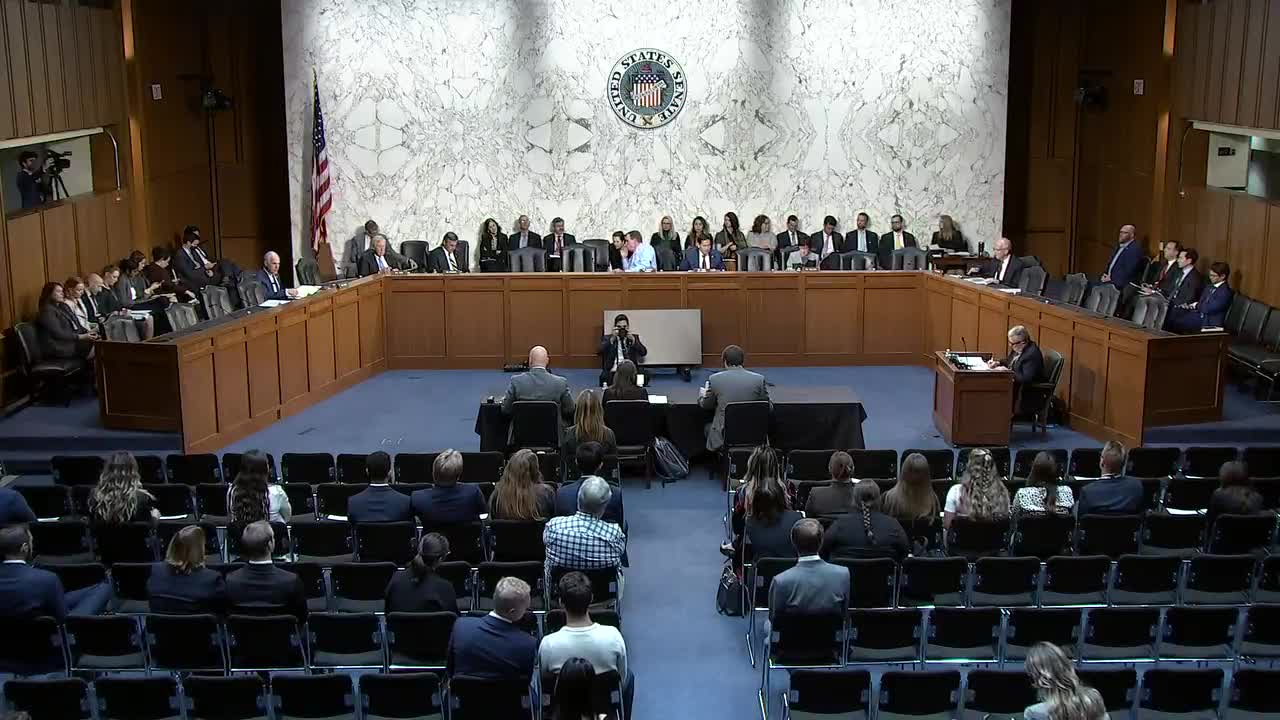China's United Front Strategy Targets US Influence Through Covert Operations
January 15, 2025 | Senate Select Committee on Intelligence, Special, Select and Other Committees - House & Senate, Congressional Hearings Compilation
This article was created by AI summarizing key points discussed. AI makes mistakes, so for full details and context, please refer to the video of the full meeting. Please report any errors so we can fix them. Report an error »

During a recent Senate Select Committee on Intelligence meeting, the nomination of John L. Ratcliffe as the Director of the Central Intelligence Agency sparked significant discussions about China's influence operations in the United States. This topic is particularly relevant to communities across the nation, as it highlights the ongoing challenges posed by foreign interference in local affairs.
Ratcliffe, who has extensive experience in intelligence and national security, emphasized the importance of understanding China's "malign foreign influence operations." He explained that these operations stem from a strategy known as the United Front, which aims to infiltrate and co-opt organizations and individuals in society to align with the goals of the Chinese Communist Party (CCP). This approach not only seeks to eliminate opposition but also to control various aspects of civil society.
The implications of these operations are profound for American communities. As Ratcliffe pointed out, the CCP's strategy is not limited to China; it extends globally, aiming to manipulate foreign societies to serve its interests. This raises concerns about the integrity of local institutions and the potential for misinformation to disrupt community cohesion.
In addition to discussing the United Front, Ratcliffe highlighted the extensive bureaucratic machinery behind these operations, including the United Front Work Department, which employs thousands to promote the party's agenda. He noted that every member of the CCP is tasked with advancing these goals, which further complicates the landscape of foreign influence.
The meeting underscored the need for vigilance and awareness among residents regarding the potential impacts of foreign influence on local governance and community dynamics. As the Senate continues to evaluate Ratcliffe's nomination, the discussions serve as a reminder of the interconnectedness of national security and local community well-being.
In conclusion, the nomination hearing not only focused on Ratcliffe's qualifications but also illuminated the broader implications of foreign influence operations. As communities navigate these challenges, understanding the dynamics at play will be crucial in safeguarding local interests and maintaining democratic integrity.
Ratcliffe, who has extensive experience in intelligence and national security, emphasized the importance of understanding China's "malign foreign influence operations." He explained that these operations stem from a strategy known as the United Front, which aims to infiltrate and co-opt organizations and individuals in society to align with the goals of the Chinese Communist Party (CCP). This approach not only seeks to eliminate opposition but also to control various aspects of civil society.
The implications of these operations are profound for American communities. As Ratcliffe pointed out, the CCP's strategy is not limited to China; it extends globally, aiming to manipulate foreign societies to serve its interests. This raises concerns about the integrity of local institutions and the potential for misinformation to disrupt community cohesion.
In addition to discussing the United Front, Ratcliffe highlighted the extensive bureaucratic machinery behind these operations, including the United Front Work Department, which employs thousands to promote the party's agenda. He noted that every member of the CCP is tasked with advancing these goals, which further complicates the landscape of foreign influence.
The meeting underscored the need for vigilance and awareness among residents regarding the potential impacts of foreign influence on local governance and community dynamics. As the Senate continues to evaluate Ratcliffe's nomination, the discussions serve as a reminder of the interconnectedness of national security and local community well-being.
In conclusion, the nomination hearing not only focused on Ratcliffe's qualifications but also illuminated the broader implications of foreign influence operations. As communities navigate these challenges, understanding the dynamics at play will be crucial in safeguarding local interests and maintaining democratic integrity.
View full meeting
This article is based on a recent meeting—watch the full video and explore the complete transcript for deeper insights into the discussion.
View full meeting